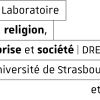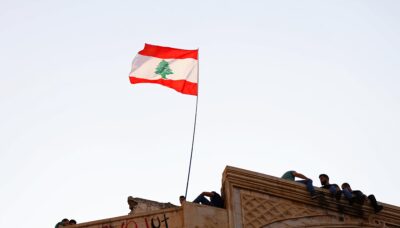By Sanem Aksoy Dursun, Professor of Civil Law, Istanbul University Faculty of Law
Greeks, Armenians and Jews, leading non-Muslim minorities of the Ottoman Empire, had established foundations with the permission of the Sultan in order to meet their social needs. They were thus able to meet the needs of the communities such as health and education. Unlike the muslim waqf, community foundations do not have a deed. Institutions accepted as Community Foundations in the Ottoman period were not foundations in the real sense of the term but individual charitable institutions. Their property was usually registered at the land registry office on the clergy or trusted members of the community. These charitable institutions and their properties were administered by the bodily and spiritual assemblies of their own communities, chaired by the patriarch or the chief rabbi. Although their legal status is recognized by law after the declaration of the Republic in 1923 their problems remained unsolved and they still continue today. Today, community foundations have two main problems. The first is the ownership or property problem per se, the second is the management problems. In the present short essay the problems will be put forth first and then the legal solutions to these problems will be discussed. These problems are undoubtedly related to legislative changes. Although the General Directorate of Foundations spoke of some changes in this regard, a written draft of law or proposal could not be reached.
1. Property Problems of the Community Foundations
During the Ottoman administration, with a temporary law approved in 1912 (the Statute on the Dispositions of the Spouses of the Real Estate), the legal entity of non-Muslim organizations were accepted and their right to acquire property was provided within the scope of this statute. Before this Statute the community foundations’ legal identity was not recognized. Thus they used to register properties in pseudo names (e.g. Aron, son of Alex) or alias (e.g. Jesus, son of Mary). By the Statute of 1912 the immovables of the foundations were registered in he name of the foundation in the land registry. On the other hand, this right could not be fully exercised due to the Balkan war that broke out in the same year after the approval of the law. Moreover a limited span of time, i.e. one year and a half was given to the foundations to submit a declaration to hold the owner title in land registry was not enough.
Following the establishment of the Republic of Turkey, it was stated in the Civil Code that came into force in 1926 that a distinct law would be drawn up on non-Muslim organizations. After the 1924 Lausanne Peace Treaty included the provisions on the protection of minorities and their rights, through the Statute on Foundations numbered 2762, which came into force in 1935, charities belonging to the minorities were asked to submit their declarations. Pursuant to the Statute on Foundations it was envisaged that these institutions would submit a declaration regarding the properties they owned (today known as the 1936 Declaration), to be qualified as foundations. On the other hand, some of the immovables listed in the declaration could not be registered in the name of the relevant foundation on the grounds that they were registered under a pseudonym and in the name of the deceased, had been transferred to the General Directorate of Foundations or the Treasury. As the non-muslim foundations’ legal entity was not recognized the property belonging to them which were registered in the name of Jesus or Mary could not be regained. Thus foundations lost some of their property.
Foundations belonging to non-Muslims acquired property even after they were accepted as legal entities. However, in the decision of the General Assembly of the Court of Cassation[1] the declarations (such as 1936 decleration) which were actually used to determine their property were considered to be foundation deeds, and the general rule regarding “foundations that do not have a provision allowing them acquire property in the foundation deed, cannot acquire property” were applied to the community foundations.As a result,the court ruled that community foundations could not acquire property. Most of the community foundations do not have a foundation deed in the first place. Because unlike muslim waqf, they were not founded with a foundation deed or a waqfiyya, they were establised by the decision of the Sultan in order to meet the social needs of the non-muslim community. For this reason, after 1936, the goods they acquired through donations, wills and purchases were cancelled as a result of lawsuits filed by the Treasury or the General Directorate of Foundations. Yet, in disputes brought before the ECtHR the decision of the Court of Cassation stating that the Declaration will replace the foundation deed and that there is no provision in the declaration that they can acquire immovable property, has been deemed contrary to the provision of Article 1 of Protocol ANNEX-1 of the ECHR. It is seen that this decision has also been criticized by several Turkish jurists in various legal commentaries.
A regulation was made in 2002 with the Statute No. 4771 in order to solve both the problems experienced in the registration of the immovables declared in the 1936 declarations, and the transfer of the immovables acquired after 1936 and similar problems. Through the Statute (No. 4771), community foundations have been given the opportunity to acquire property and dispose of their immovables to meet their religious, charitable, social, educational, sanitary and cultural needs, regardless of whether they have foundation deeds or not. In addition, it was regulated that the immovable properties that are in their possession should be registered in the land registry in the name of these foundations, and in the regulation related to this provision, documents proving that they disposed of the immovables were requested, and if any of these documents were presented, it was decided to register the immovable in the name of the foundation.
The Statute of Foundations No. 5737, which entered into force in 2008, forms the basis of the most comprehensive and up-to-date legislation to which non-Muslim foundations are subject. As we will discuss in detail below, the law in question establishes the constitutional rights of non-Muslim foundations that have been violated for a long time, for example, the right to acquire property through donations, inheritance and purchases, foundations supporting each other, determining the election procedures of foundation managers and of minority foundations. It can be seen as an important but insufficient set of regulations.
The Following regulation has been made in Provisional Article 7 of the Statute of Foundations (No. 5737):
a)Immovables that are registered in the 1936 Declaration and registered in the land of registry in name of alias or notables, which are still in the possession of community foundations and, registry in name
b) Although it was purchased by community foundations after the 1936 Declaration or bequeathed or donated to community foundations, the immovables registered still on the grounds of not being able to acquire property in the land registry on behalf of the Treasury or the General Directorate of Foundations or the testators or donors, together with their rights and obligations stated in the land registry records, should be registered by the relevant land registry directorates on behalf of the community foundations after the positive decision of the Foundations Council, in case an application is made within eighteen months from the effective date of this Statute.
Finally, through the Governmental Decree, No. 651, dated 27.07.2011, a provisional article (No. 11) was added to the Statute of Foundations, the Regulation regarding the implementation of the article.[3] The Provisional Article 11 prescribes:
a) Of the immovables of the community foundations registered in the 1936 Declaration and whose owner’s residence is missing in the land registry,
b) Those immovables registered in the 1936 Declaration and registered on behalf of the Treasury, the General Directorate of Foundations, the municipality and the special provincial administration for reasons other than expropriation, sale and barter,
c) Cemeteries and fountains registered in the 1936 Declaration and registered in the name of public institutions,
If an application is made within twelve months from the effective date of this article, together with the rights and obligations stated in the land registry, they should be registered by the relevant land registry directorates on behalf of the non-Muslim foundations after the positive decision of the Foundations Council.
The current value determined by the Ministry of Finance of the immovables registered in the land registry in the name of the third parties which are acquired from the Treasury or the General Directorate of Foundations on the grounds of not being able to acquire property, although they have been purchased by community foundations or bequeathed or donated to community foundations, shall be compensated by the Treasury or the General Directorate.
Despite this provision, the property problems of non-Muslim foundations have not been fully resolved in practice. According to the information given by the General Directorate of Foundations, in line with the provisional article 7 of the Statute of Foundations, out of 1410 registration applications for all minority foundations, 181 were answered positively and 347 were negatively, and 890 applications were rejected on the grounds that there were insufficient documents. The fact that the applications rejected due to lack of relevant documents make up almost 65% of the total applications is undoubtedly a result of the arbitrary practices of the bureaucracy.
The rate of the total amount of the immovables the foundations recovered through judiciary means is only 11%. The rate of the properties that have been reclaimed through judicial proceedings reveals that the assumption that property problems of the minority institutions have been largely resolved with the right of application granted to foundations in the last ten years is misleading.
Thus, a more comprehensive legal regulation is required in this regard. In particular, new regulation regarding immovable properties that are not included in the 1936 declaration but whose property rights have been proven in any case, would be appropriate. The 1936 declaration is important only to provide ease of proof in the applications made by the foundations to the administration. However, as long as the ownership right of the immovables that are not included in the declaration can be proven, they should be registered on behalf of the foundation. To interpret the provisions of the Statute explained above as if immovable properties that were not registered in the 1936 declaration could not be returned to the relevant foundation violates the property rights of non-muslim community.
On the other hand, there is a need for more comprehensive regulations in terms of immovables that were acquired after 1936 but were not registered on the behalf of the community foundation on the grounds that they could not be appropriated. In this case, the regulations should be amended so that the property belonging to the community foundations registered in the name of fused (muslim) foundations that do not have independent administrations, especially since they are now affiliated to the General Directorate of Foundations, shall be returned to the community foundation; public officials should be obliged to present documents to facilitate providing proof. Above all, since the right of ownership cannot be bound to a period of time, it would be appropriate to introduce regulations that make room for the right that the claims regarding ownership can always be made in court, considering that the periods fixed by law are only for applying to the administration.
2) Management Issues Regarding Community Foundations
According to Article 6 of the Statute of Foundations 2008, “The managers of the community foundations are elected by their members from among themselves. The election procedures and principles of foundation managers are regulated by a regulation.” The given regulation was also included in Articles 29 to 33 of the Foundations Regulation dated 2008. Following the Beyoğlu Üç Horan Church Foundation elections, which were repeated three times between 2009 and 2012 due to irregularities, Articles 29 to 33 of the Regulation were repealed in 2013. Election applications made by foundations after 2013 were rejected on the grounds that the related articles were annulled, while in 2019, due to decrease in the number of the board of directors for various reasons such as death, resignation, etc, a process was carried out for foundations to appoint new members. This operation was cancelled in 2021 by the acceptance of the objection made to the 7th Administrative Court of Ankara.
Paragraph 4.3, titled “Providing Freedom of Religion and Conscience in the Broadest Sense” included in the Human Rights Action Plan and Implementation Calendar published by the Ministry of Justice in April 2021, promises that “A regulation will be made for the Foundations regarding the establishment and election of board of directors in non-Muslim community foundations” within one year. In November 2021, it was announced by the relating ministry that minority foundations manager elections would be held until the end of April 2022. As a matter of fact, four of the five central foundations serving the entire Armenian community in Istanbul (Surp Haç Tıbrevank High School Foundation, Karagözyan Orphanage Foundation, Kalfayan Orphanage Foundation, Surp Lusavoriç Church and Getronagan High School Foundation) gave their donations to the General Directorate of Foundations for election on October 3, 2021. The petitions were not accepted on the grounds that there was no legal regulation regarding the elections and that they were still being organized; thereupon, the Surp Haç Tibrevank High School Foundation filed a lawsuit with the Istanbul Administrative Court.
Actually, there could be no legal impediment to holding elections since it is clearly stated by the mandatory provision of the law regarding the election of the foundation managers. In accordance with the hierarchy of norms, the absence of regulation provisions regarding elections should not impede the exercise of the rights obtained by the mandatory provision of the law. Again, due to the hierarchy of norms, no court should be able to make a decision that “elections cannot be held” on the grounds that there are no regulations. The absence of any legal provision regulating the election of administrators did not impede the foundations from holding elections between the years 1949 and 2004. The absence of an election regulation issued by the Ministry of Interior in 2004 and cancelled in 2008 should not impede the holding of elections.
As a result of not making the necessary legal arrangements, the foundations could not hold their elections, and non-Muslim minorities, all consisting of Turkish citizens as members, could not benefit from educational, religious and health services. Since it is a problem that affects their daily needs, it creates a situation that harms the public. Although the board of directors were authorized by the non-Muslim community for four years, the legitimacy and actions of the members of the board of directors, who have been on duty for more than ten years, have become controversial in the eyes of the society. There are foundation managements whose number of board members falls below three. Thus, the communities cannot fulfil their duties and responsibilities in evaluating the services offered to them, supervising and improving the management of their institutions.
A legal regulation should be enacted in this regard. The needs of the society should not be ignored while making legal arrangements in this regard. In recent years, the population of the minorities has to a large extent declined on the one hand, and they have dispersed to several different districts on the other. Demands are expressed that the non-Muslim community, which benefits from minority schools or hospitals located in a district other than the one they live in, can vote in the managerial elections of all foundations belonging to the community, and that all foundations may determine their electoral districts (on the basis of voters and candidates) as a province-wide. Considering the foundations whose financial resources increase despite the decrease in the number of voters in their neighborhood, or whose number of voters or expenses (such as school expenses) increase despite the decline in financial resources, the determination of the electoral districts of all foundations throughout the province will help recover income-expenditure imbalances, improve service quality and transparency and is likely to contribute to increasing accountability. In this context, it is clear that electoral districts should be established. In terms of election security, ensuring the up-to-dateness, reliability and security of the voter lists, averting arbitrary and unlawful practices that may occur in the election processes, ensuring that the elections are held in a fair, transparent and wide-participation manner, listening to the objections to the election process and its results, and even forming free-standing election boards authorized to warn the foundations who do not hold elections in due time and in a proper way. It is obvious that there is a need for independent election boards that are authorized to initiate the election process for foundations that cannot be renewed in a way that is appropriate. Moreover, there is a need for election provisions that make it possible to establish joint foundation administrations, considering the possibility that the number of managers with the required qualifications will not be sufficient compared to the number of voters, since there is a condition in the election provisions to be held that a person can only be a manager in one foundation. Finally, it should be underlined that a transparent and participatory decision-making process was not followed in the preparation of the election provisions, in order to take the opinions of the foundations and to determine the needs and demands of the society.
Conclusion
The solution to the problems of minorities living in Turkey depends on the enactment of several legal regulations. It is seen that the property rights of minority foundations are still violated. It is necessary to adopt new regulations in this regard and to review the provisions that allow misinterpretation in the existing regulations. Legal arrangements are needed to fulfil the right of associations to organize by filling the legal gap regarding the election of administrators of community foundations. However, regarding the legal amendments to be made in this regard, there is a closed process going on. In this respect, it is a matter of curiosity whether changes will be made that really meet the needs of the minority society. The expectations are that the legal regulations to be introduced will be more positive.
[1] Dated 8.5.1974 and numbered 1971/2-820 E, 1974/505 K.
[2] Published in the Official Gazette, No. 26800, 27.02.2008.
[3] Published in the Official Gazette , No. 28077, 01.10.2011.









